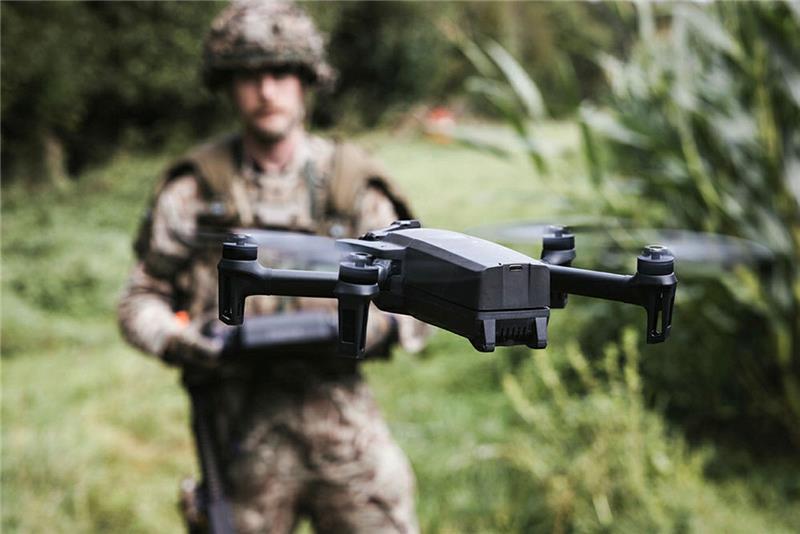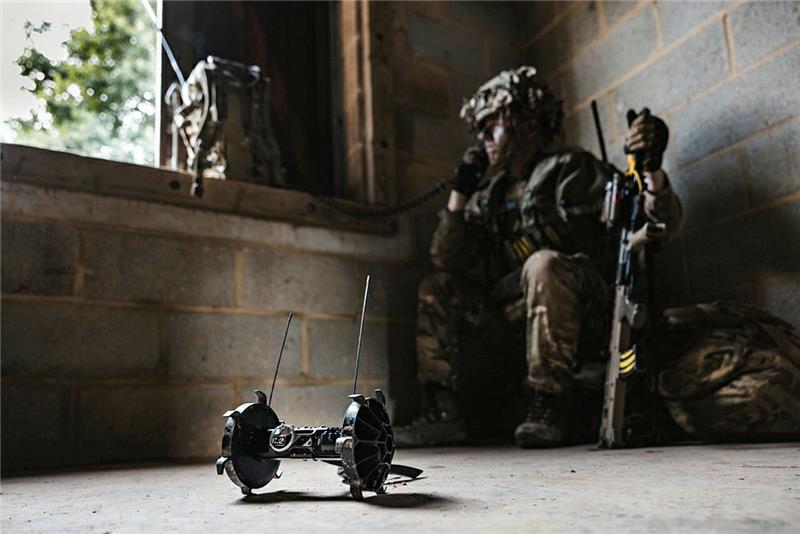A New War Mindset: The Future of Western Defense Innovation

Retired Colonel Enrique Oti, former co-founder of the US Defense Innovation Unit (DIU) and now Chief Strategy Officer at US-based Second Front Systems, discusses with Olivia Savage the key issues with defense acquisition and how adopting a different, war mindset could transform the process.
Western defense acquisition remains "radically inefficient," despite a realization from the West that it must innovate faster to outpace its adversaries, Oti said.
The West, including the US and UK, "try to put together this idea of defense innovation, or these ideas of rapid modernization, but something's falling short. The pull-through rate of DASA [Defense and Security Accelerator] and other similar [defense acquisition institutions] is really low [and] very little new technology is actually making it," he explained.
Expediting acquisition in China
China can expedite the acquisition process because individuals have the authority to purchase new technology and demand its use for the military, he explained. State-owned enterprises and government funds are also tasked with finding new technologies globally and either acquiring or investing in the developer or obtaining the intellectual property for reverse engineering. All of this is being done on behalf of the Chinese government, he continued.
The speed and scale of this process is not happening in the West. In part, because there is an "acquisition cadre" who fail to recognize that they are a key part of the war effort and that their inaction could "kill soldiers," Oti stated.
"They never talk about it that way. Like, they never say 'if I don't put this company under contract, there's probably an impact that thousands of soldiers are going to die because they have lower-quality kit than the enemy'," he continued.
(UK MOD Crown Copyright 2023)
Acquisition cadres must therefore recognize that they are a warfighting discipline, where procurement as well as the studying of their adversaries’ acquisition tactics, techniques, and procedures are vital for operational advantage, he continued.
For example, China is acquiring Western technology and investing in Western startups. This is happening on a significant scale globally as China invests and moves at a pace which startups require to remain competitive.
Acquisitions are not only competing for technology but also for people, talent, and natural resources. They are in "a state of continuous conflict between great powers," he said.
A War Mindset
Adopting a war mindset would help shift their priorities from being risk-averse to one that is more accepting of institutional risk to mitigate threats to warfighters, he explained.
The cyber community has already adopted this mindset because they are constantly engaged in conflict. Ultimately, this has changed how the West organizes, trains, and equips its cyber forces, leading to the establishment of national cyber combatant commands, he said.
(UK MOD Crown Copyright 2023)
Adopting this new mindset would also enable acquisition professionals to have command-and-control over the entire process, ensuring they have oversight and a common operating picture over what the frontline commands require, who the end users are, and the key suppliers.
While he acknowledged that policy is also important to help improve the acquisition process, he noted that there are already initiatives in place to improve it, but that they are not being widely adopted. In part because of the risk-averse attitude.
"It's not a policy constraint at all, it's a mindset issue, even the willingness to use those methodologies, I think, will take a decade, or longer."
For example, the US Congress established the Other Transaction Authority (OTA) in 2016, two years later, the DIU created an initiative for using OTAs called Commercial Solutions Openings (CSO) to expedite the acquisition process, including enabling rapid prototyping, and large-scale production. However, outside of DIU, very few institutions adopt this approach, he explained.
APEX
A brand-new defense event, Apex, is attempting to meet these challenges head-on by bringing together top-tier industry leaders, decision-makers, innovators, and new and emerging technology providers.
Attendees will be able to engage directly with defense officials and key decision-makers who are actively seeking operational technologies for immediate deployment in the field through interactive panels, demonstrations, group working sessions, and intimate workshops. Participants get a front-row seat to the latest ideas and innovations designed to address current threats.
Ultimately, Apex aims to accelerate the delivery of high-impact, mission-critical solutions to US warfighters and allied forces, addressing urgent needs with near-term solutions, while also redefining how these entities connect with each other.
)
)

)

